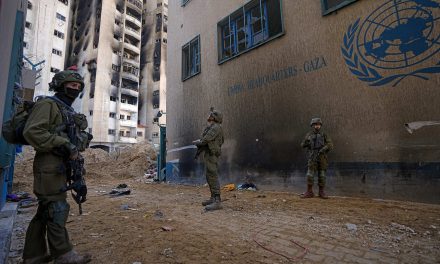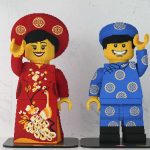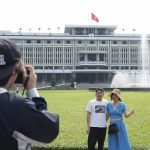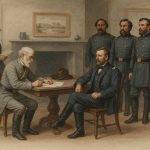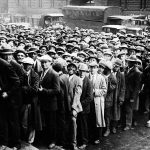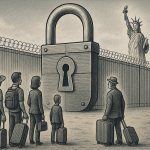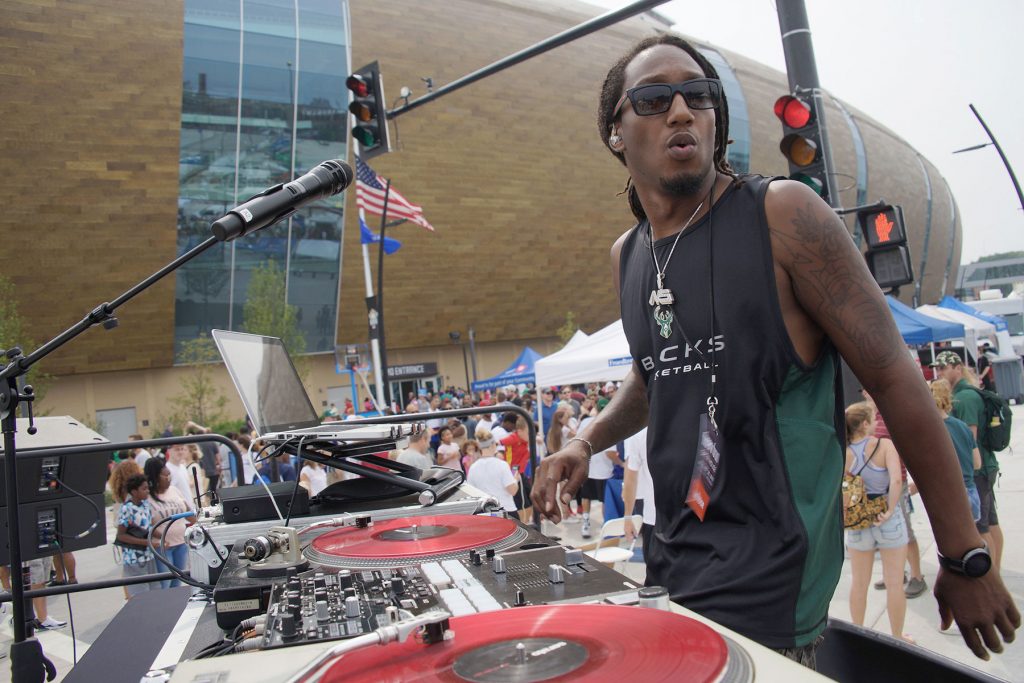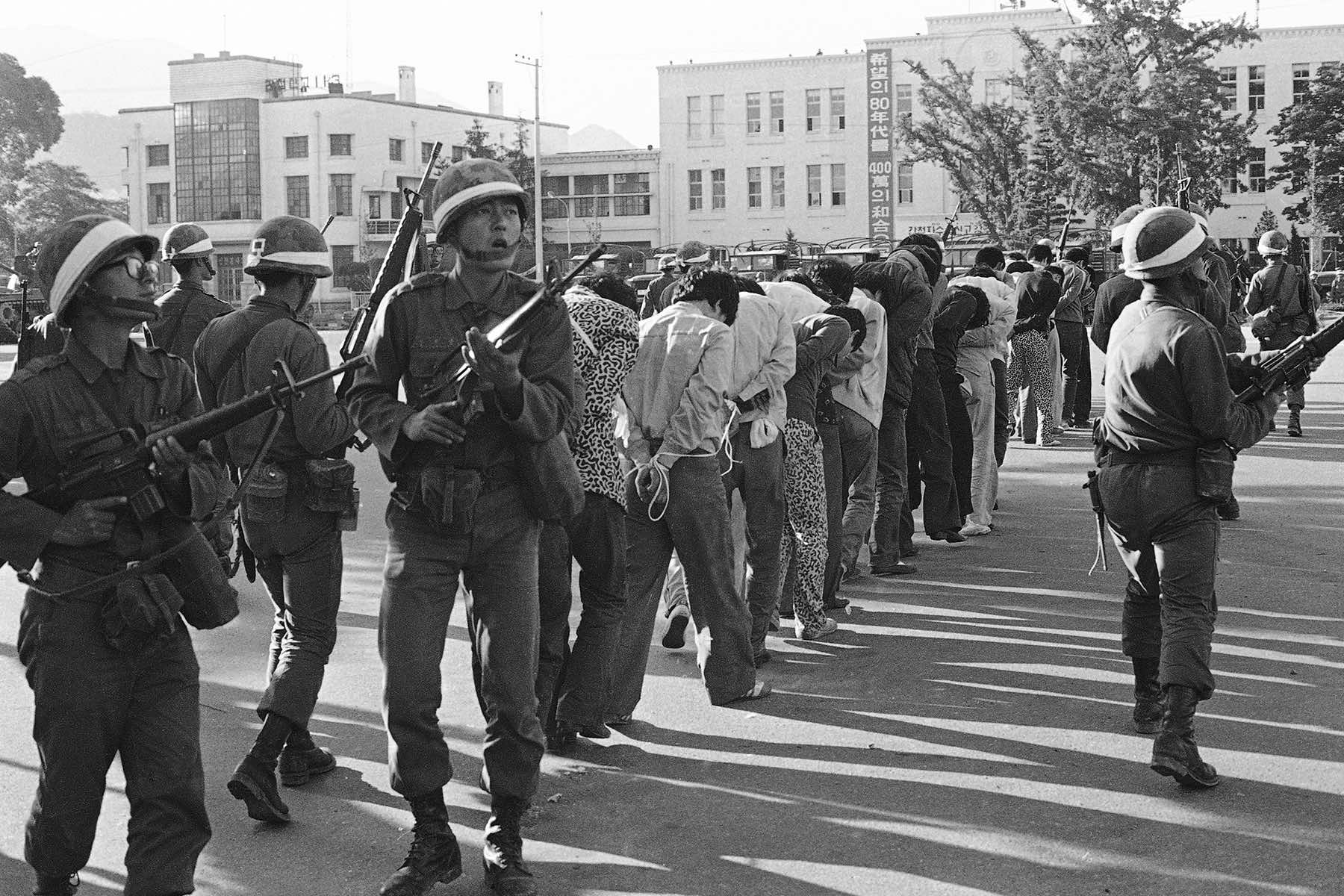
South Korea’s President Yoon Suk Yeol faced parliamentary moves to impeach him after he sent heavily armed forces into Seoul’s streets with his baffling and sudden declaration of martial law that harkened to the country’s past dictatorships.
Opposition parties submitted the impeachment motion just hours after parliament unanimously voted to cancel Yoon’s declaration, forcing him to lift martial law about six hours after it began. Impeaching Yoon requires the support of two-thirds of the National Assembly and at least six of the nine Constitutional Court justices. The liberal opposition Democratic Party holds a majority in the 300-seat parliament and has called for Yoon’s resignation.
A vote on the impeachment motion could be held as early as December 6, Democratic Party lawmaker Kim Yong-min said.
During the tense hours under martial law, heavily armed forces surrounded the parliament, backed by army helicopters and armored vehicles. Lawmakers climbed walls to get into the building and held off troops by activating fire extinguishers. Politician and former news anchor Ahn Gwi-ryeong tried to pull an assault rifle away from a soldier who had pointed it at her chest as she shouted: “Aren’t you ashamed of yourselves?”
The lawmakers who managed to reenter the building rejected Yoon’s martial law declaration 190-0, including 18 lawmakers from Yoon’s party, forcing Yoon to rescind it at a hastily assembled Cabinet meeting. Here is what to know about the situation in South Korea:
YOON BLAMED AN “ANTI-STATE” PLOT BUT DETAILS ARE VAGUE
Yoon ordered martial law without warning in a speech on December 3 where he vowed to eliminate “anti-state” forces he said were plotting rebellion and accused the main opposition parties of supporting the country’s rival, North Korea.
Yoon gave no direct evidence when he raised the specter of North Korea as a destabilizing force. Yoon has long maintained that a hard line against the North is the only way to stop Pyongyang from following through on its nuclear threats against Seoul.
In the late 1980s, South Korea had a series of strongmen who repeatedly invoked North Korea when struggling to control domestic dissidents and political opponents.
Yoon has struggled to get his agenda through an opposition-dominated parliament while facing corruption scandals involving him and his wife.
WHAT IS MARTIAL LAW?
South Korea’s constitution gives the president power to use the military to keep order in “wartime, war-like situations or other comparable national emergency states.” That can include suspending civil rights like the freedom of the press and assembly, and temporarily limiting the powers of the courts and government agencies.
But it also gives the National Assembly power to lift the declaration with a majority vote.
Some experts say the way Yoon imposed martial law went far beyond his legitimate powers. While it comes with far-reaching powers, the constitution does not allow a president to use the military to suspend parliament. Many also question whether the country really faces a situation comparable to war.
LAWMAKERS ON BOTH SIDES OPPOSED MARTIAL LAW
The opposition lambasted Yoon’s actions as undemocratic. Opposition leader Lee Jae-myung, who narrowly lost to Yoon in the 2022 presidential election, called Yoon’s announcement “illegal and unconstitutional.”
The sudden declaration was also opposed by the leader of Yoon’s own conservative party, Han Dong-hoon, who called the decision wrong and vowed to “stop it with the people.”
“The people will block the president’s anti-constitutional step. The military must be on the side of the public in any case. Let’s resolutely oppose it,” Kim Dong Yeon, the opposition party governor of Gyeonggi province, which surrounds Seoul, wrote on X.
Average South Koreans were in shock. Social media was flooded with messages expressing surprise and worry over Yoon’s announcement.
YOON IS STRUGGLING POLITICALLY
There were quick claims that the emergency declaration was linked to Yoon’s political struggles. He has had little success in getting his policies adopted by a parliament that has been controlled by the opposition since he took over in 2022.
Conservatives have said the opposition moves are political revenge for investigations into Lee, who is seen as the favorite for the next presidential election in 2027.
In November, Yoon denied wrongdoing in an influence-peddling scandal involving him and his wife. The claims have battered his approval ratings and fueled attacks by his rivals.
The scandal centers on claims that Yoon and first lady Kim Keon Hee exerted inappropriate influence on the conservative ruling People Power Party to pick a certain candidate to run for a parliamentary by-election in 2022 at the request of Myung Tae-kyun, an election broker and founder of a polling agency who conducted free opinion surveys for Yoon before he became president. Yoon has said he did nothing inappropriate.
MARTIAL LAW HAS A DARK HISTORY IN SOUTH KOREA
South Korea became a democracy only in the late 1980s, and military intervention in civilian affairs is still a touchy subject.
During the dictatorships that emerged as the country rebuilt from the 1950-53 Korean War, leaders occasionally proclaimed martial law that allowed them to station combat soldiers, tanks, and armored vehicles on streets or in public places to prevent anti-government demonstrations. Such scenes are unimaginable for many today.
Dictator Park Chung-hee, who ruled South Korea for nearly 20 years before he was assassinated by his spy chief in 1979, led several thousand troops into Seoul in the early hours of May 16, 1961, in the country’s first coup. He proclaimed martial law several times to stop protests and jail critics.
Less than two months after Park’s death, Major General Chun Doo-hwan led tanks and troops into Seoul in December 1979 in the country’s second coup. The next year, he orchestrated a brutal military crackdown on a pro-democracy uprising in the southern city of Gwangju, killing at least 200 people.
In the summer of 1987, massive street protests forced Chun’s government to accept direct presidential elections. His army buddy Roh Tae-woo, who had joined Chun’s 1979 coup, won the election held later in 1987 thanks largely to divided votes among liberal opposition candidates.
- Exploring Korea: Stories from Milwaukee to the DMZ and across a divided peninsula
- A pawn of history: How the Great Power struggle to control Korea set the stage for its civil war
- Names for Korea: The evolution of English words used for its identity from Gojoseon to Daehan Minguk
- SeonJoo So Oh: Living her dream of creating a "folded paper" bridge between Milwaukee and Korean culture
- A Cultural Bridge: Why Milwaukee needs to invest in a Museum that celebrates Korean art and history
- Korean diplomat joins Milwaukee's Korean American community in celebration of 79th Liberation Day
- John T. Chisholm: Standing guard along the volatile Korean DMZ at the end of the Cold War
- Most Dangerous Game: The golf course where U.S. soldiers play surrounded by North Korean snipers
- Triumph and Tragedy: How the 1988 Seoul Olympics became a battleground for Cold War politics
- Dan Odya: The challenges of serving at the Korean Demilitarized Zone during the Vietnam War
- The Korean Demilitarized Zone: A border between peace and war that also cuts across hearts and history
- The Korean DMZ Conflict: A forgotten "Second Chapter" of America's "Forgotten War"
- Dick Cavalco: A life shaped by service but also silence for 65 years about the Korean War
- Overshadowed by conflict: Why the Korean War still struggles for recognition and remembrance
- Wisconsin's Korean War Memorial stands as a timeless tribute to a generation of "forgotten" veterans
- Glenn Dohrmann: The extraordinary journey from an orphaned farm boy to a highly decorated hero
- The fight for Hill 266: Glenn Dohrmann recalls one of the Korean War's most fierce battles
- Frozen in time: Rare photos from a side of the Korean War that most families in Milwaukee never saw
- Jessica Boling: The emotional journey from an American adoption to reclaiming her Korean identity
- A deportation story: When South Korea was forced to confront its adoption industry's history of abuse
- South Korea faces severe population decline amid growing burdens on marriage and parenthood
- Emma Daisy Gertel: Why finding comfort with the "in-between space" as a Korean adoptee is a superpower
- The Soul of Seoul: A photographic look at the dynamic streets and urban layers of a megacity
- The Creation of Hangul: A linguistic masterpiece designed by King Sejong to increase Korean literacy
- Rick Wood: Veteran Milwaukee photojournalist reflects on his rare trip to reclusive North Korea
- Dynastic Rule: Personality cult of Kim Jong Un expands as North Koreans wear his pins to show total loyalty
- South Korea formalizes nuclear deterrent strategy with U.S. as North Korea aims to boost atomic arsenal
- Tea with Jin: A rare conversation with a North Korean defector living a happier life in Seoul
- Journalism and Statecraft: Why it is complicated for foreign press to interview a North Korean defector
- Inside North Korea’s Isolation: A decade of images show rare views of life around Pyongyang
- Karyn Althoff Roelke: How Honor Flights remind Korean War veterans that they are not forgotten
- Letters from North Korea: How Milwaukee County Historical Society preserves stories from war veterans
- A Cold War Secret: Graves discovered of Russian pilots who flew MiG jets for North Korea during Korean War
- Heechang Kang: How a Korean American pastor balances tradition and integration at church
- Faith and Heritage: A Pew Research Center's perspective on Korean American Christians in Milwaukee
- Landmark legal verdict by South Korea's top court opens the door to some rights for same-sex couples
- Kenny Yoo: How the adversities of dyslexia and the war in Afghanistan fueled his success as a photojournalist
- Walking between two worlds: The complex dynamics of code-switching among Korean Americans
- A look back at Kamala Harris in South Korea as U.S. looks ahead to more provocations by North Korea
- Jason S. Yi: Feeling at peace with the duality of being both an American and a Korean in Milwaukee
- The Zainichi experience: Second season of “Pachinko” examines the hardships of ethnic Koreans in Japan
- Shadows of History: South Korea's lingering struggle for justice over "Comfort Women"
- Christopher Michael Doll: An unexpected life in South Korea and its cross-cultural intersections
- Korea in 1895: How UW-Milwaukee's AGSL protects the historic treasures of Kim Jeong-ho and George C. Foulk
- "Ink. Brush. Paper." Exhibit: Korean Sumukhwa art highlights women’s empowerment in Milwaukee
- Christopher Wing: The cultural bonds between Milwaukee and Changwon built by brewing beer
- Halloween Crowd Crush: A solemn remembrance of the Itaewon tragedy after two years of mourning
- Forgotten Victims: How panic and paranoia led to a massacre of refugees at the No Gun Ri Bridge
- Kyoung Ae Cho: How embracing Korean heritage and uniting cultures started with her own name
- Complexities of Identity: When being from North Korea does not mean being North Korean
- A fragile peace: Tensions simmer at DMZ as North Korean soldiers cross into the South multiple times
- Byung-Il Choi: A lifelong dedication to medicine began with the kindness of U.S. soldiers to a child of war
- Restoring Harmony: South Korea's long search to reclaim its identity from Japanese occupation
- Sado gold mine gains UNESCO status after Tokyo pledges to exhibit WWII trauma of Korean laborers
- The Heartbeat of K-Pop: How Tina Melk's passion for Korean music inspired a utopia for others to share
- K-pop Revolution: The Korean cultural phenomenon that captivated a growing audience in Milwaukee
- Artifacts from BTS and LE SSERAFIM featured at Grammy Museum exhibit put K-pop fashion in the spotlight
- Hyunjoo Han: The unconventional path from a Korean village to Milwaukee’s multicultural landscape
- The Battle of Restraint: How nuclear weapons almost redefined warfare on the Korean peninsula
- Rejection of peace: Why North Korea's increasing hostility to the South was inevitable
- WonWoo Chung: Navigating life, faith, and identity between cultures in Milwaukee and Seoul
- Korean Landmarks: A visual tour of heritage sites from the Silla and Joseon Dynasties
- South Korea’s Digital Nomad Visa offers a global gateway for Milwaukee’s young professionals
- Forgotten Gando: Why the autonomous Korean territory within China remains a footnote in history
- A game of maps: How China prepared to steal Korean history to prevent reunification
- From Taiwan to Korea: When Mao Zedong shifted China’s priority amid Soviet and American pressures
- Hoyoon Min: Putting his future on hold in Milwaukee to serve in his homeland's military
- A long journey home: Robert P. Raess laid to rest in Wisconsin after being MIA in Korean War for 70 years
- Existential threats: A cost of living in Seoul comes with being in range of North Korea's artillery
- Jinseon Kim: A Seoulite's creative adventure recording the city’s legacy and allure through art
- A subway journey: Exploring Euljiro in illustrations and by foot on Line 2 with artist Jinseon Kim
- Seoul Searching: Revisiting the first film to explore the experiences of Korean adoptees and diaspora





